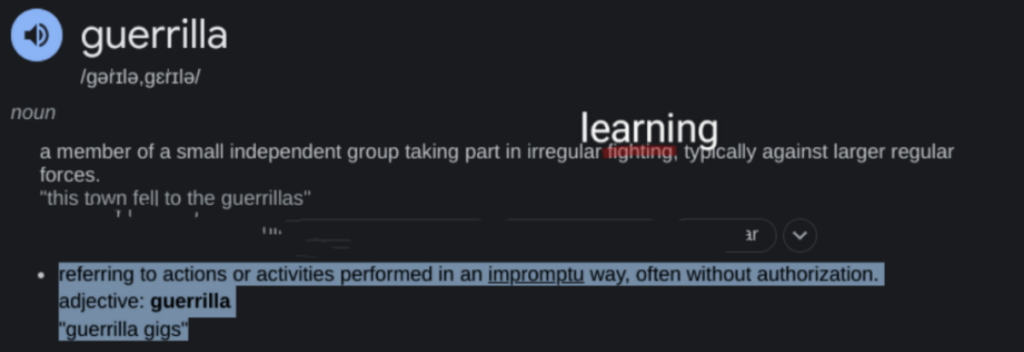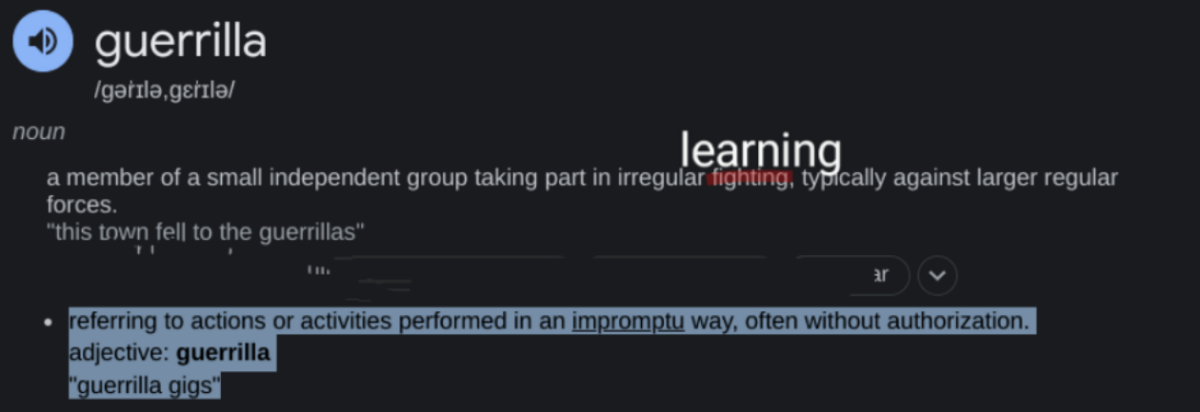Guerrilla learning recognizes an implicit equality in the relationship between putative lecturer and student and envisages education as a conversation at the heart of the various disciplines in which learners are embedded, augmenting passive information-centred pedagogies. By basing the approach in an environment of small independent groups taking part in irregular, disruptive guerrilla courses against a background context of more traditional, disciplinary based learning, these practices overcome the problem of modern specialization through moving away from individualism. They create supra-persons of knowledge production without leading to a vacuous generalist education or the invest-return model of education enabled by individualism.

The delivery of these approaches should be in response to a designated theme in line with pertinent contemporary issues driven by participant interest, as specific as “global warming,” “AI in learning” or as vague as “water” or “metal.” A group of scholars and not individuals would be best able to make sense of these issues and the various languages which could develop knowledge out of it, rather than individual scholars, and it is best carried out in an interdisciplinary context of interested learners from diverse disciplines.
One can imagine a philosophy lecturer and an engineering lecturer with their students discussing robots and wanting to bring their different “languages” together. Or a group of students and lecturers from various disciplines (chemistry, architecture, art history) looking at “water,” “pornography” or “art galleries”. These short courses will be unstructured and use context-based learning pedagogy. The role of the lecturers is to direct, partner but also themselves learn from the groups in conversation. The relationship between learners creates innovative curricula and new disciplines and technology facilitates the communication, research and ability to translate diverse languages to each other.
